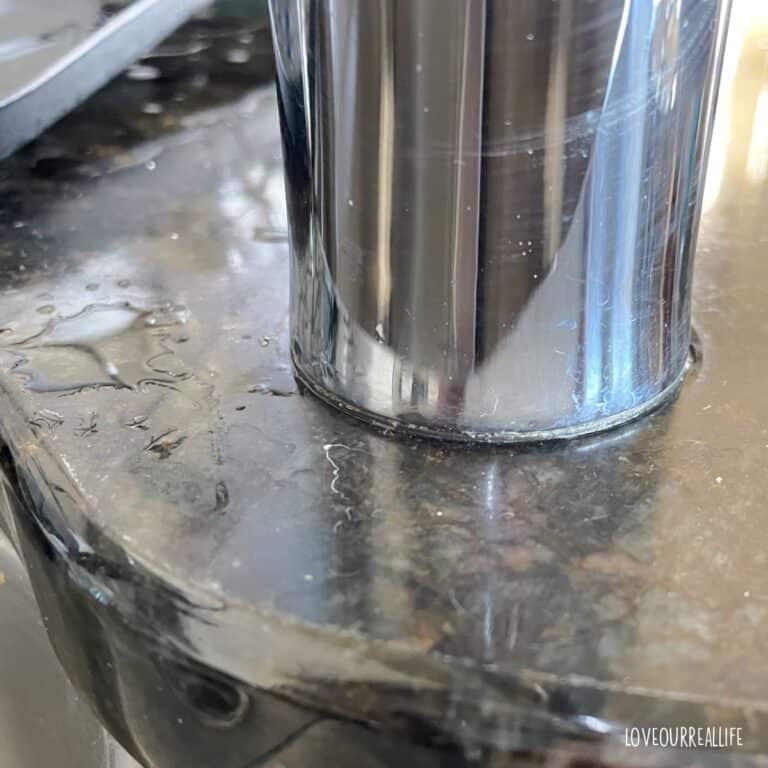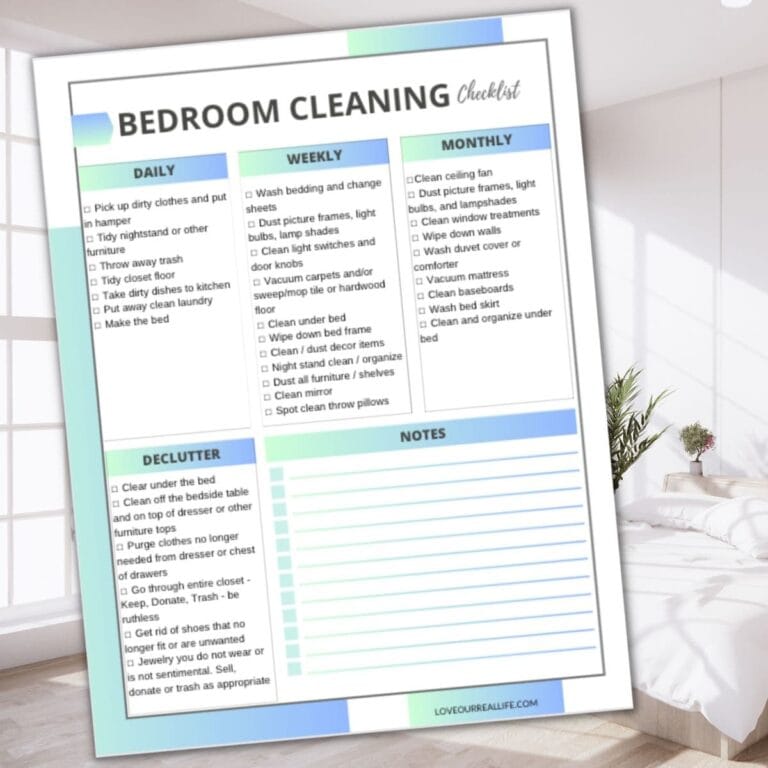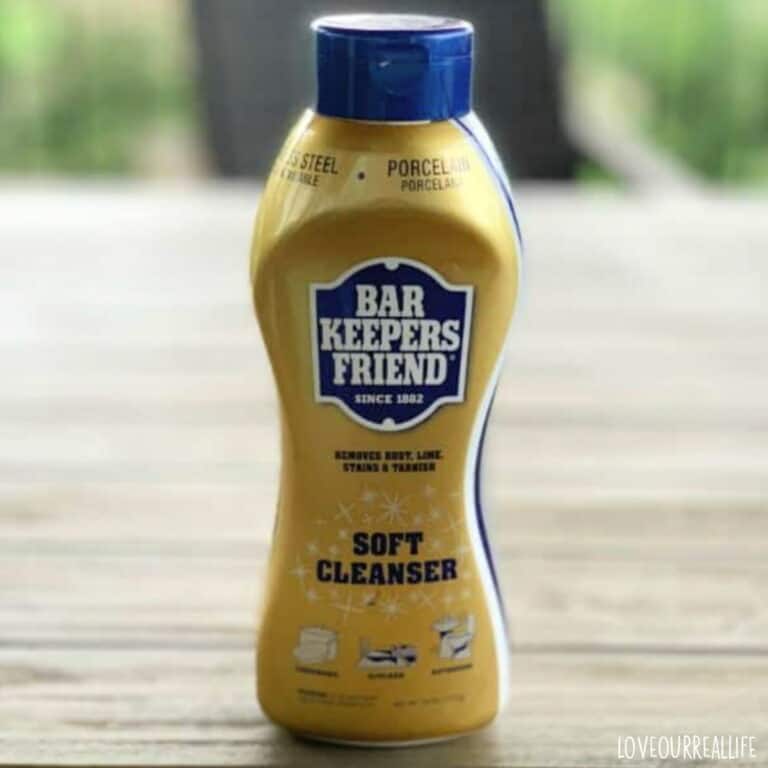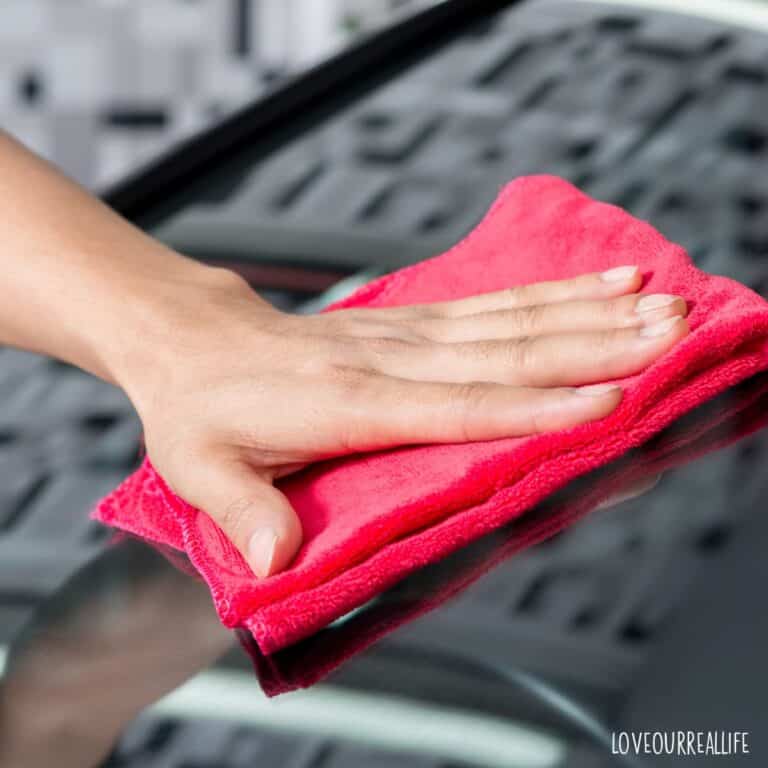How To Clean Water Spots Off Shower Doors
Don’t you hate when water spots develop on your clear, shiny shower glass doors? This usually happens when water droplets are left to dry, leaving crusty, stubborn minerals behind. Cleaning hard water spots off shower doors might feel challenging. But, achieving a clean glass surface can be simple with the help of smart techniques and the right tools.
You can clean hard water stains off shower doors by making a paste with baking soda and white vinegar and spreading it over the affected areas with a sponge. Leave it for a few minutes, scrub it, then rinse it with distilled water and a squeegee. Wipe the surface dry with a microfiber cloth.

In this article, I will walk you through the steps for cleaning water spots off your shower glass doors.
We will discuss why a baking soda and white vinegar mixture is among your best bets and what tools you should use when tackling this challenging job of making your bathroom look fresh and clean.
Get more bathroom cleaning and general house cleaning tips here.
What Causes Water Spots on Shower Doors and Glass
There are several possible causes of water spots on glass shower doors. These are the main culprits:
- Mineral Buildup
- Soap scum from bar soap
- Scratches in glass
Cloudy Mineral Deposits
Water spots on glass shower doors are caused by hard water, which has a high mineral content.
Hard water leaves behind a residue of excess minerals when it evaporates, leaving visible marks on the glass surface. The most common causes of hard water are calcium and magnesium found in groundwater and other pollutants like dirt, silt, and rust particles that contribute to the problem.
A water softener can help reduce these water spots from ever getting the chance to form on shower door glass and may be a consideration worth looking into.
Bar Soap Scum
Suppose the door isn’t wiped down and dried immediately after a shower. In that case, there can be soapy buildup left behind from bar soap which could eventually lead to a noticeable film accumulating over time.
You may find less film forms on doors or shower curtains when showering with liquid soap.

Scratches in Glass
Another cause of water spots on glass is improper cleaning techniques or using abrasive materials such as scratchy sponges or steel wool to clean mirrors and windows.
These items can scratch or damage the glass surface, trapping minerals already present in the hard water deposits left behind from previous cleanings.
To avoid leaving unsightly marks on your windows and mirrors, use a soft cloth to minimize scratches while cleaning them thoroughly. Even paper towels can be abrasive, but they should be reasonably safe on shower doors (not mirrors).
Steps to Clean Water Spots Off Shower Doors
The best way to clean the surface of the glass on shower doors using these simple steps:
- Form paste with baking soda and white vinegar.
- Lightly scrub with a microfiber cloth in a circular motion.
- Rinse doors.
- Dry doors with a squeegee.
Let’s get into more detail for each step.
1. Fill a Container With Baking Soda and Some White Vinegar
Start with baking soda — half a cup will usually do for a regular-sized shower door. Add white vinegar slowly while mixing until you form a thick paste.
You can adjust the portions depending on the size of your shower glass doors.
Note that the mixture will start sizzling as soon as white vinegar comes into contact with baking soda, and this should not cause alarm. It is a normal chemical reaction, causing bubble formation and fizzing sounds.
Using rubber gloves to protect your skin from possible adverse reactions is best. If you have baking soda or vinegar allergies, it would be better to wear a surgical mask to avoid inhalation.
Here are some of the more common side effects of exposure to baking soda and vinegar:
Vinegar
- Skin itchiness
- Hives
- Eye irritation
- Stuffy nose
- Headache
- Dizziness
- Asthma
Baking Soda
- Dry, itchy skin
- Nausea
- Hives
- Swelling (lips, tongue, or face)
- Difficulty breathing
- Premature skin wrinkling (with frequent exposure)
If you’re allergic to baking soda or white vinegar (or both), opt for other cleaning products instead. See further suggestions below for cleaning doors and stainless steel faucets.
2. Spread the Mixture All Over Your Shower Doors
Using a non-abrasive sponge or soft brush, spread the paste over your shower glass door, paying extra attention to the areas with hard water stains.

Lightly scrub these areas to ensure the mixture gets through into the limescale. Let the mixture sit for at least 15 minutes to allow it to work its magic.
Baking soda and white vinegar work so well because they are both on the extreme ends of the pH scale.
Baking soda has a pH level of 9 (making it extremely basic), while vinegar clocks in with a pH of 2 (making it highly acidic).
Baking soda is an abrasive that breaks down grease, dirt, and grime, effectively lifting them off surfaces.
On the other hand, white vinegar can dissolve the mineral deposits in hard water stains (also known as limescale), making them much easier to get rid of.
A little elbow grease (scrubbing) might be necessary to remove water spots from hard water minerals or tough stains.
An old toothbrush, in combination with the baking soda and vinegar solution, works wonders against stubborn hard water stains.
RELATED: How to Clean Hard Water Stains on Granite
3. Rinse Off the Mixture
Rinse off the baking soda and white vinegar mixture with very warm water or hot water.
Use a squeegee or sponge to wipe the mixture off your shower glass doors. If hard water is the cause of your water spots, you can use distilled water for rinsing.
Distilled water can be better than tap water when cleaning glass shower doors. Regular tap water often contains impurities and minerals, which are the reasons why you have hard water stains on your shower glass walls and doors in the first place.
Here are some reasons why you should use distilled water for your shower glass doors:
- Contains no minerals or impurities. Distilled water has a neutral pH level of 7. The distillation process removes practically all contaminants and minerals, leaving oxygen and hydrogen molecules primarily. It is one of the purest among all the water forms.
- It is a diluted form of carbonic acid. Distilled water becomes a diluted form of carbonic acid when it comes into contact with air and reacts with carbon dioxide. It then becomes slightly acidic and an effective remover of grime and stains.
- Leaves no residue. Since distilled water contains no impurities and minerals, it leaves no residue, even on the surface of your shower glass door.
4. Dry Your Shower Door
Wipe down your shower glass doors using a microfiber cloth. It is reliable in getting rid of excess water since it can hold liquids more than its weight. It can also attract leftover dirt, dust, and grime.
A handy tip — wipe down your shower glass doors and walls with a microfiber towel after you use your bathroom shower.
Doing this daily will help prevent the formation of limescale and keep your shower door clear and fresh.
Regular Maintenance to Reduce Water Spots
The simplest way to avoid harsh chemicals and maintain a clean bathroom that gets regular use is by regular cleaning.
A daily shower cleaner is easy to clean the shower floor and doors with a simple spray. Method works well for spraying without the need to rinse.
Another great way to clean shower walls and glass shower enclosures is with a squeegee after each use. Squeegees can remove soap scum and keep water spots from forming.

RELATED: Best Way to Clean Bathroom Mats
Other Methods to Clean Water Spots on Shower Doors
While I believe baking soda and vinegar is the most effective cleaning solution for showers in most cases, you may want to try other methods, which include:
- Dish soap and warm vinegar
- Lemon juice
- Magic Eraser Sponge
- Rubbing Alcohol
- Bar Keeper’s Friend
- Hydrogen Peroxide
- Ammonia
Dish Soap and Warm White Vinegar
Mixing equal parts Dawn dish soap with white vinegar effectively removes built-up dirt and grime from the nooks and crannies of your shower. This method works.
Combine the mixture in a spray bottle, spray in the shower, then use a sponge or clean cloth to scrub the shower. After washing, rinse with warm or even cold water. Dry with a towel.
It’s inexpensive to keep your bathroom sparkling clean without the need for harsh chemical cleaners.
Lemon Juice
Lemons are acidic and are great alternatives to white vinegar. They offer a similar level of cleaning thanks to the citric acid, minus the pungent odor.
Here’s how to clean shower glass doors with lemon juice:
- Juice 3 medium-sized lemons.
- Mix the lemon juice with a cup of distilled water and pour it into a spray bottle.
- Spray all over the affected area and leave for about 5 minutes.
- Wipe off the mixture and the limescale with a microfiber cloth.
- Dry the surface using a clean microfiber cloth.
Magic Eraser Sponge
Magic erasers are all the rage because they make cleaning extra fast and simple.
They can remove soap scum, grime, and stains without the help of cleaning products. You must dampen the sponge and wipe away the hard water stains from the shower glass doors.

Rubbing Alcohol
Rubbing alcohol is a multipurpose cleaner that can be used to clean showers and many other surfaces.
Begin by filling a spray bottle with 1 part rubbing alcohol, 1 part vinegar, and 2 parts water (this will help dilute the strength of the rubbing alcohol). Let sit for several minutes, scrub, and rinse.
Bar Keepers Friend
Bar keepers friend is an excellent cleaner I’ve used throughout the years. It also works very well to remove water spots on shower doors.
To clean a shower, ensure the shower is well. Apply Bar Keepers Friend to a non-scratch sponge and scrub away!
Pay close attention to the bottom of the door, where hard water stains tend to be worse. Also, remember the shower door tracks and metal frame.
It is safe on natural stone, too. But, test in a small area first, before full use.
After scrubbing, rinse well. Dry with a soft cloth.
Hydrogen Peroxide
Keep hydrogen peroxide in a spray bottle and use it as a daily cleaner after each shower. It is much less expensive than many other everyday cleaners.
Hydrogen peroxide can also be mixed with baking soda to form a paste that is effective for tougher stains. This paste works great for cleaning shower grout.
Ammonia
Ammonia may be tricky to work with since it contains many chemicals and can be a health hazard. Keep in mind that it should never be mixed with bleach because the mixture gives rise to harmful vapors.
While ammonia is an effective cleaner, I do not recommend it.
RELATED: How to Clean Painted Bathroom Walls
Final Thoughts
Water spots, also known as limescale and hard water stains, are best tackled as soon as they appear. The longer they stay on your shower doors, the harder they will be to remove.
Make it a habit to regularly clean your shower doors to eliminate those unsightly water spots and prevent buildup.
Cleaning your shower doors every day is ideal.
If your shower area is used heavily, a weekly deep cleaning will make a significant difference. Having clean glass shower doors will undoubtedly make your bathroom look neater and more pleasant.
FAQs
Applying a mixture of baking soda and white vinegar is effective in removing hard water stains and buildup from glass shower doors.
Magic Erasers are effective in removing hard water stains from glass on shower doors as well as drinking glasses.





